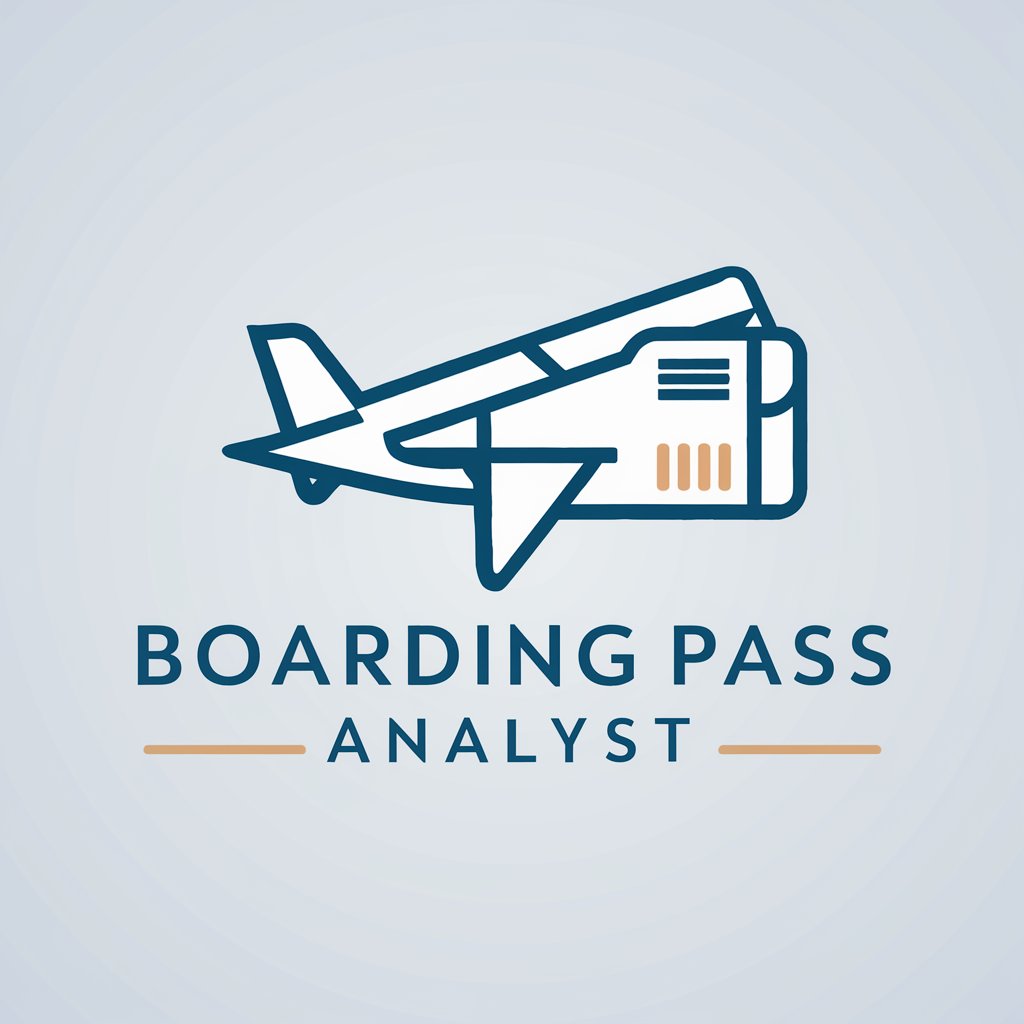8 GPTs for Flight Information Powered by AI for Free of 2026
AI GPTs designed for Flight Information are advanced tools that leverage Generative Pre-trained Transformers to offer tailored solutions for managing and accessing flight-related data. These tools are built to handle tasks ranging from simple queries about flight statuses to complex data analysis for the aviation industry. Their relevance lies in the ability to process natural language queries and generate accurate, context-aware responses, making them invaluable for anyone seeking timely and reliable flight information. GPTs stand out in their role by providing customized information retrieval and data processing capabilities, catering specifically to the nuances of flight information management.
Top 8 GPTs for Flight Information are: Travel Liaison GPT,Condor Travel Guide,Travel+Feel magazine | Qatar Airways,Southwest Sage,A-Airlines Advisor,제주국제공항 AI,Boarding Pass Analyst,TravelGPT
Travel Liaison GPT
Navigate the world smarter with AI-powered travel insights.

Condor Travel Guide
Empowering your travel with AI

Travel+Feel magazine | Qatar Airways
Explore, Dream, Discover with AI

Southwest Sage
Expert Southwest Airlines guidance, powered by AI.

A-Airlines Advisor
Your AI-powered American Airlines guide

제주국제공항 AI
Streamline Your Airport Experience with AI

Boarding Pass Analyst
Uncover Flight Details with AI

TravelGPT
Your AI-Powered Travel Companion

Key Attributes of Flight Information AI Tools
AI GPTs for Flight Information are equipped with several core features that set them apart. These include natural language processing for understanding and generating human-like responses to queries about flight schedules, delays, and bookings. They're adaptable, capable of handling requests ranging from straightforward questions to complex inquiries requiring detailed analysis. Special features often include real-time data fetching, multilingual support for global usability, and integration capabilities with various platforms and APIs. These tools also provide technical support and development kits for custom solution development, showcasing their versatility within the flight information domain.
Who Benefits from Flight Info AI?
The primary beneficiaries of AI GPTs for Flight Information include travel enthusiasts, frequent flyers, aviation professionals, and developers in the travel and tourism sector. These tools are designed to be accessible to novices without coding skills, offering easy-to-use interfaces for querying flight data. Simultaneously, they offer extensive customization options for developers and professionals, enabling the creation of tailored applications or services that integrate seamlessly with existing systems, enhancing both efficiency and user experience in the aviation industry.
Try Our other AI GPTs tools for Free
Baggage Assistance
Discover how AI GPTs for Baggage Assistance revolutionize luggage handling with real-time tracking, automated customer service, and seamless integration capabilities.
Frequent Flyer
Discover AI-driven travel companionship with GPTs for Frequent Flyers, revolutionizing your travel experience with personalized, efficient, and intelligent solutions.
Pokemon Adventure
Explore AI GPT tools for Pokemon Adventure, designed to enhance creativity and strategy for fans and creators alike with customized, intuitive solutions.
Humorous Gameplay
Revolutionize your gaming experience with AI GPTs for Humorous Gameplay – versatile, user-friendly tools designed to infuse your games with engaging, tailor-made humor.
Interactive Battles
Discover AI GPTs for Interactive Battles: Tailored tools designed to enhance gaming strategies and simulations, making advanced battle scenarios accessible to all.
GPU Computing
Explore AI GPT tools for GPU Computing: Tailored solutions for data analysis, deep learning, and beyond. Enhance your GPU computing tasks with advanced AI capabilities.
Expanding Horizons with AI in Aviation
AI GPTs for Flight Information are not just about fetching flight data; they represent a leap towards more intelligent, efficient, and user-friendly aviation and travel sectors. By leveraging these tools, organizations can improve decision-making processes, enhance customer satisfaction, and streamline operations. The integration capabilities also mean that these tools can be seamlessly incorporated into existing systems, providing a layer of intelligence that augments human capabilities and transforms the way flight information is managed and disseminated.
Frequently Asked Questions
What exactly are AI GPTs for Flight Information?
They are AI-driven tools that use Generative Pre-trained Transformers to provide accurate and context-aware flight information, including schedules, delays, and booking details.
How do these tools process queries?
They use natural language processing to understand and generate responses to queries in a conversational manner, making it easy for users to get the information they need.
Can non-technical users access these AI tools?
Yes, they are designed with user-friendly interfaces that require no coding skills, making them accessible to everyone.
Are there customization options for developers?
Absolutely. Developers can access APIs and development kits to build custom solutions or integrate these tools into existing systems.
Do these AI tools support multiple languages?
Yes, many of these tools offer multilingual support, catering to a global audience.
Can I use these tools to check for flight delays?
Yes, you can query these tools about flight delays, real-time statuses, and much more.
How accurate is the flight information provided?
The tools strive to provide the most up-to-date and accurate information by sourcing data from reliable databases and services.
Are there any specific sectors within aviation that benefit more from these tools?
While beneficial across the board, sectors like commercial airlines, airport operations, and travel agencies might find these tools particularly useful for enhancing operational efficiency and customer service.